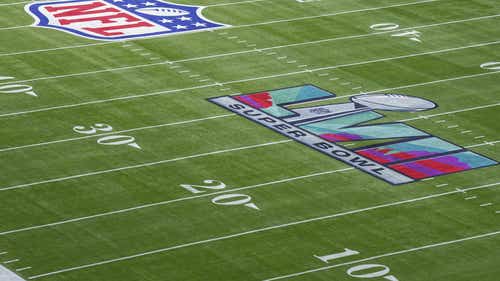
How scouting the college football bowls has changed for NFL teams
The college bowl season was once the best time of the year for the football world. The postseason games not only rewarded coaches and players for their outstanding work throughout the regular season, it gave NFL coaches, scouts and executives an opportunity to see top prospects square off in high-stakes battles that mimicked some of the pressure and intensity that NFL players face each week.
As a scout in the 2000s, I remember how important it was to reference how a top prospect performed in a bowl game. Coaches, in particular, wanted to know how a player fared in the Rose Bowl, Sugar Bowl or Cotton Bowl because those pressured-packed games were played in a playoff-like atmosphere. Moreover, those games likely featured several blue-chip players, and evaluators paid close attention to the "alphas" who separated themselves from the pack.
In the 2006 Rose Bowl, it was apparent that Reggie Bush and Vince Young were the best players on a field littered with future pros. The No. 2 and No. 3 overall picks in the 2006 NFL Draft dominated the game from start to finish while producing a handful of splash plays that prompted evaluators to view each player as a potential superstar at the next level.
Although Bush and Young did not play up to expectations in the NFL, both carved out respectable careers and flashed "blue" traits (elite characteristics) at times. The impression that each player made on me during his bowl game appearances certainly impacted how I graded his talent and potential as a future pro.
Fast-forward to 2022, the football landscape has changed, with players routinely opting to sit out bowl games to start their pre-draft preparations. The growing list this year includes such potential first-round picks as Kentucky QB Will Levis, Notre Dame TE Michael Mayer, Florida QB Anthony Richardson and Ohio State WR Jaxon Smith-Njigba. Though I would prefer to see every top prospect play in meaningful games, I have been around the NFL long enough to know that those postseason matchups are bonus games on the evaluation calendar. Scouts and executives must focus on the biggest games on a prospect's résumé to assess and project his skills as a future pro.
As an old-school evaluator, I place a greater emphasis on rivalry games, conference championship battles, or matchups against elite competition (individual or team) to determine how a player stacks up as an NFL prospect. Part of my willingness to change is related to the fluid nature of scouting during the COVID-19 pandemic. With so many players opting out of their final seasons, scouts were forced to make evaluations and projections relying on footage from earlier in their careers.
Considering how well Ja'Marr Chase and Micah Parsons have fared as pros without playing their final seasons, I learned that it is more important to grade the "flashes" (upside and potential) than production. That means focusing on what a prospect does well and how he could evolve or flourish in a system or program that accentuates his talent. With prospects also impacted by the supporting cast around them, it is important to imagine how a player could fit in with a team and what is the perfect role for him within the squad.
Looking at the 2023 draft and the prospects who could join the class as early entrants, I am paying close attention to the ticker to see which blue-chip prospects are participating or sitting out the bowl season. While scouts are not supposed to deduct points from a prospect's final grade for lack of participation, evaluators will monitor whether a player misses a bowl game but shows up for a college all-star game in a few weeks.
By "abandoning" his teammates to make a "business" decision that could enhance his draft stock, the prospect will face tough questions about his commitment, accountability and trustworthiness as a teammate. He will also deal with being perceived as "selfish" by some within the scouting community.
That said, the evaluation will not change much based on a prospect's decision to opt-out of a bowl game. Evaluators will simply look at the games in which he played and base their final grades on those contests. Scouts will also factor in how well the prospect played in an all-star game since those exhibitions are "good on good" competitions with blue-chip talents facing off in one-on-ones and team drills throughout the practice week before playing in a game.
Those performances carry a little more weight than how a prospect fares in a lower-tier bowl against weaker competition. Although the College Football Playoff is viewed as a different animal, the college bowl season is no longer a major factor in the evaluation process despite the moans and groans uttered by scouts when a blue-chip player opts out of a game.
Top stories from FOX Sports:
- Tom Brady grew up a 49ers fan. Ahead of San Francisco homecoming, a look at his past
- 2023 NFL mock draft: Bryce Young goes first, but strong DL class stands out
- Aaron Judge tested the Yankees’ commitment and won
- What Xander Bogaerts' 11-year contract means for Padres, Red Sox
- Anthony Davis using play to silence critics: ‘I know what I’m capable of'
- College football transfer portal tracker: QB JT Daniels on the move again
- Kylian Mbappe is already one of the World Cup’s all-time greats
- USMNT optimistic about future: 'We can be giants eventually'
- The end of Cristiano Ronaldo as we know him
- Harry Kane gets support from David Beckham ahead of England-France
- World Cup expert picks: Brazil is the unanimous favorite heading into quarterfinals
Bucky Brooks is an NFL analyst for FOX Sports. He regularly appears on "Speak For Yourself" and also breaks down the game for NFL Network and as a cohost of the "Moving the Sticks" podcast. Follow him on Twitter @BuckyBrooks.










